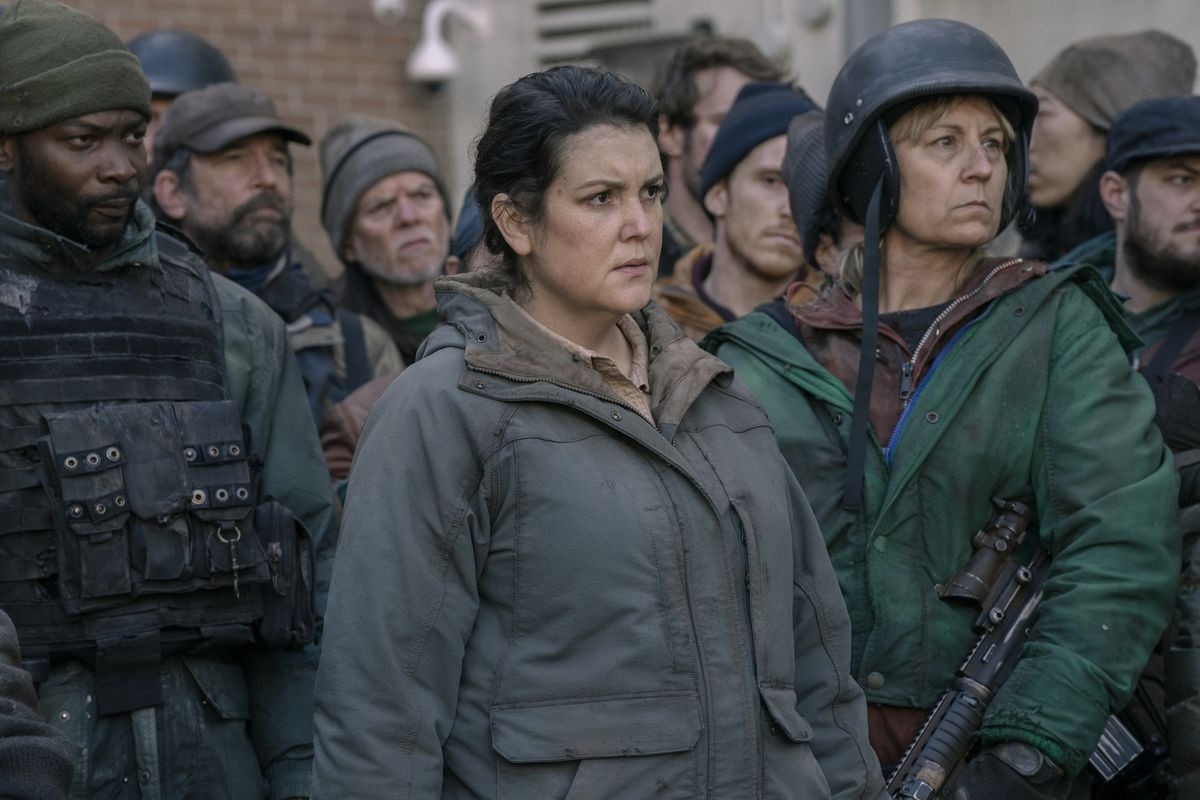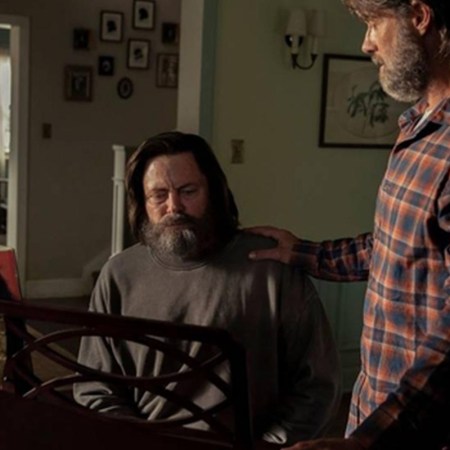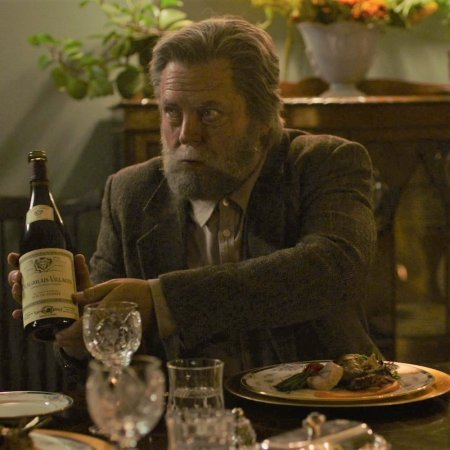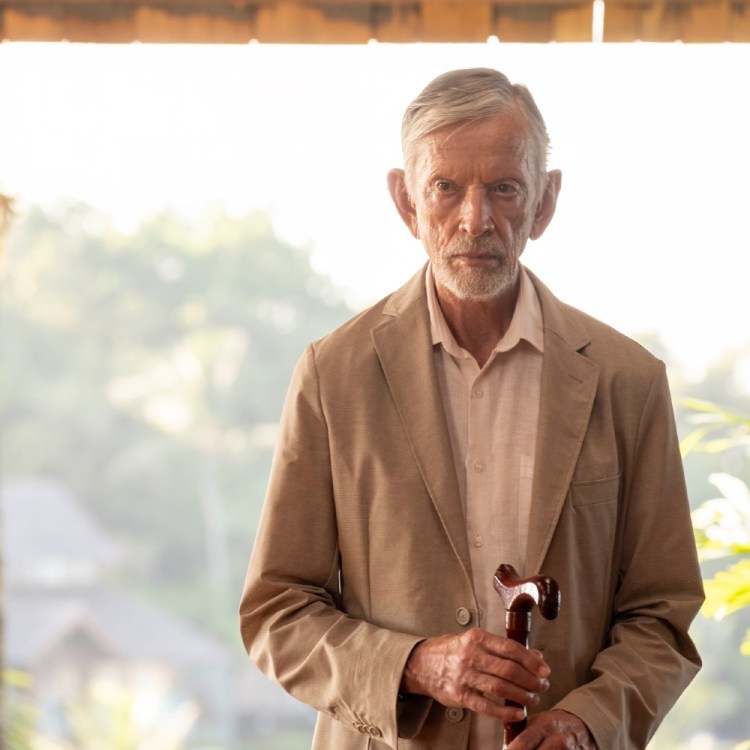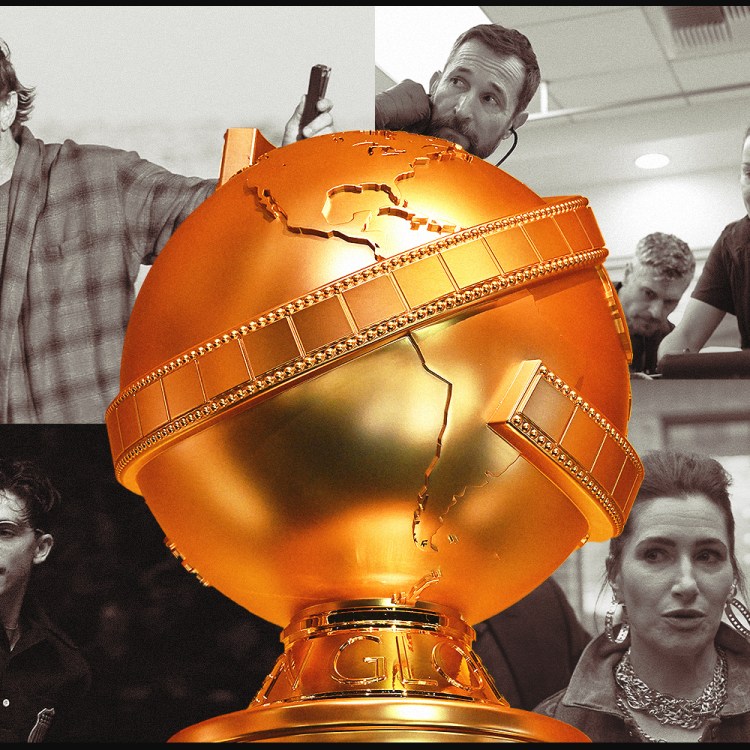Like Nick Offerman and Murray Bartlett before her, Melanie Lynskey has been earning praise for her recent role on HBO’s The Last of Us, but apparently not everyone is impressed with her appearance on the show. On Wednesday, Lynskey clapped back on Twitter after former America’s Next Top Model contestant Adrianne Curry body-shamed her, claiming that her physique is unrealistic for her character.
“Her body says life of luxury…not post apocalyptic warlord,” Curry wrote in a since-deleted tweet. “Where is Linda Hamilton when you need her?”
It’s a stupid argument that rears its ugly head every now and then whenever a post-apocalyptic or disaster show finds its way into the zeitgeist. (Remember when everyone started complaining about the fact that Hurley never lost any weight on Lost despite being stranded on a desert island?) But in order to watch and enjoy The Last of Us, you already have to suspend disbelief enough to accept the reality that a fungal infection is capable of turning humans into zombies. Why is that easier to accept than the fact that a woman who’s smart enough to lead a revolution wouldn’t instantly become emaciated during the pandemic?
Lynskey responded to Curry, sharing a screenshot of her tweet and writing, “Firstly- this is a photo from my cover shoot for InStyle magazine, not a still from HBO’s ‘The Last Of Us.’ And I’m playing a person who meticulously planned & executed an overthrow of FEDRA. I am supposed to be SMART, ma’am. I don’t need to be muscly. That’s what henchmen are for.”
She also shared a lengthy thread explaining why playing this character meant so much to her — specifically because it’s a way to subvert expectations about femininity and toughness that have become so ingrained in pop culture.
“Other than getting to work with creative geniuses who I respect and admire (Neil & Craig) the thing that excited me most about doing #TheLastOfUs is that my casting suggested the possibility of a future in which people start listening to the person with the best ideas,” she wrote. “Not the coolest or the toughest person. The organiser. The person who knows where everything is. The person who is doing the planning. The person who can multitask. The one who’s decisive.”
Reminder: You Can Still Buy That Trucker Jacket From “The Last of Us”
Season two returns this Sunday. The waxed trucker jacket never left.“Women, and especially women in leadership positions, are scrutinized incessantly,” she continued. “Her voice is too shrill. Her voice is too quiet. She pays too much attention to how she looks. She doesn’t pay enough attention to how she looks. She’s too angry. She’s not angry enough. I was excited at the idea of playing a woman who had, in a desperate and tragic time, jumped into a role she had never planned on having and nobody else had planned on her having, and then she actually got shit done.”
“I wanted her to look like she should have a notepad on her at all times,” Lynskey concluded. “I wanted her to be feminine, and soft-voiced, and all the things that we’ve been told are ‘weak.’ Because honestly, fuck that. I understand that some people are mad that I’m not the typical casting for this role. That’s thrilling to me. Other than the moments after action is called, when you feel like you’re actually in someone else’s body, the most exciting part of my job is subverting expectations.”
She makes a lot of good points. And Curry, who achieved her 15 minutes of fame by rising up the ranks in an industry that historically has promoted eating disorders and conditioned women to hate their bodies, should take them to heart.
Thanks for reading InsideHook. Sign up for our daily newsletter and be in the know.
